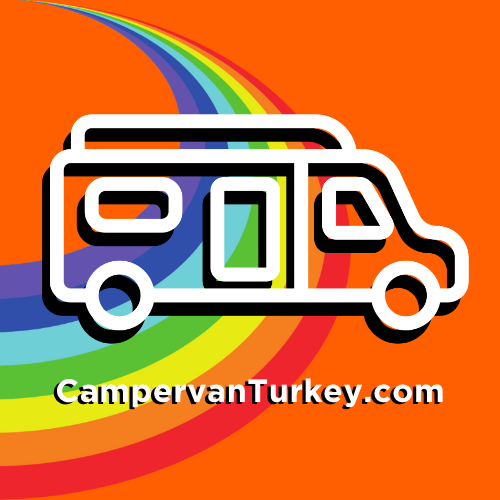Caravan travel in Turkey is becoming a favored choice for many adventurers. With breathtaking landscapes and a rich cultural tapestry, tourists are excited to explore. However, navigating the regulations around caravan parking is crucial for a smooth journey. This guide aims to illuminate the laws and requirements for caravan parking in Turkey, so travelers can enjoy their adventures without interruptions.
Understanding the Caravan Culture in Turkey
Traveling by caravan in Turkey offers a unique way to experience the nation. Imagine waking up to stunning views along the Aegean coast or the fascinating ruins of eastern provinces. This lifestyle offers freedom and flexibility, making it appealing to many.
Yet, this freedom comes with responsibilities. Each area has specific parking laws that can vary widely. Being informed can save you from unexpected fines, which can reach up to 1,000 Turkish Lira in some regions, and help you have a more enjoyable travel experience.
Caravan Parking Regulations in Turkey
General Restrictions
Parking regulations vary across Turkey. In busy cities like Izmir or Antalya, overnight parking for caravans is often not permitted. In smaller towns, you might find more leniency, but it is always best to check local signs and regulations.
Most municipalities designate specific parking areas for caravans. These areas generally have essential services like water and electricity. Skipping these designated spots can lead to fines and inconvenience.
Specific Regional Regulations
Coastal Areas
Popular coastal towns such as Antalya, Bodrum, and Fethiye provide numerous caravan parks with amenities. For example, the popular Ölüdeniz Beach offers camping spots equipped with electricity, waste disposal, and even recreational facilities. Making use of these designated areas can enhance your experience significantly.
However, remember that parking on public beaches or private property without permission can incur fines, sometimes costing over 600 Turkish Lira. Always ensure you have the proper rights to park wherever you choose.
Urban Regions
Cities like Istanbul and Ankara often present challenges for caravan parking. In these urban areas, you cannot generally park overnight in zones meant for passenger vehicles. Prohibitions can lead to your caravan getting ticketed or towed. Locating caravan parks or designated areas ahead of time will save you stress during your trip.
National Parks and Natural Reserves
Turkey boasts stunning national parks like Göreme and the Duden Waterfalls. Each park has specific rules about caravan parking to protect the environment. For instance, camping outside designated areas can lead to fines of up to 500 Turkish Lira, potentially harming local wildlife and landscapes.
To avoid these penalties, always check for official campsites with necessary facilities when visiting national parks. Generally, these sites promote a more sustainable approach to tourism as well.
Legal Requirements for Caravan Owners
Vehicle Registration and Insurance
Proper registration and insurance are essential for all caravans, regardless of whether you are a local or an international visitor. Driving an unregistered or uninsured caravan can result in fines exceeding 2,000 Turkish Lira, along with potential legal issues.
Driving Licenses
While a standard car driver’s license is enough for most vehicles, towing a caravan may require additional qualifications. Always confirm that your license covers the weight and size of your caravan, especially if it exceeds 3,500 kg.
Compliance with Local Traffic Laws
Keeping up with Turkish traffic laws is necessary. Speed limits usually range from 50 to 90 km/h in urban areas. It is also crucial to wear seat belts and refrain from using mobile phones while driving. Understanding these rules can help prevent fines and improve road safety.
Health and Safety Regulations
Waste Disposal
Responsible waste disposal is a must while traveling. Many caravan parks offer designated waste disposal areas for refuse and grey water. Improper disposal can result in fines and environmental damage, emphasizing the importance of proper waste management.
Fire Safety
Fire safety regulations are particularly important in areas prone to wildfires. Many caravan parks provide guidelines and ask visitors to have basic fire safety equipment, such as extinguishers. Familiarizing yourself with these rules is key to ensuring everyone’s safety.
Practical Tips for Caravan Parking in Turkey
Research and Plan Ahead
Doing your homework on caravan regulations for your selected destinations can significantly enhance your experience. Websites, travel blogs, and caravan forums often contain current information about caravan-friendly locations.
Communicate with Locals
Talking to local residents can uncover hidden gems for caravan parking. They may share recommendations for safe spots to stay and alert you to any upcoming events that could affect parking.
The Importance of Permits
In certain areas, especially near parks and private properties, you may need to obtain a parking or camping permit. Securing these permits not only complies with regulations but also helps protect local ecosystems.
Be mindful that not acquiring the necessary permits can lead to fines, sometimes costing around 1,500 Turkish Lira, or even the towing of your caravan. Always ask about permit requirements as soon as you arrive at your destination.
Final Thoughts
Understanding and adhering to caravan parking regulations in Turkey is essential for a fun and legal journey. With countless landscapes and rich cultural experiences awaiting you, being informed can help avoid unpleasant surprises.
Remember to plan ahead, leverage available resources, and respect local rules. By doing so, you can enjoy the diverse beauty of Turkey in your caravan without worrying about penalties. Staying informed and responsible will make your caravan adventure enjoyable and compliant.



